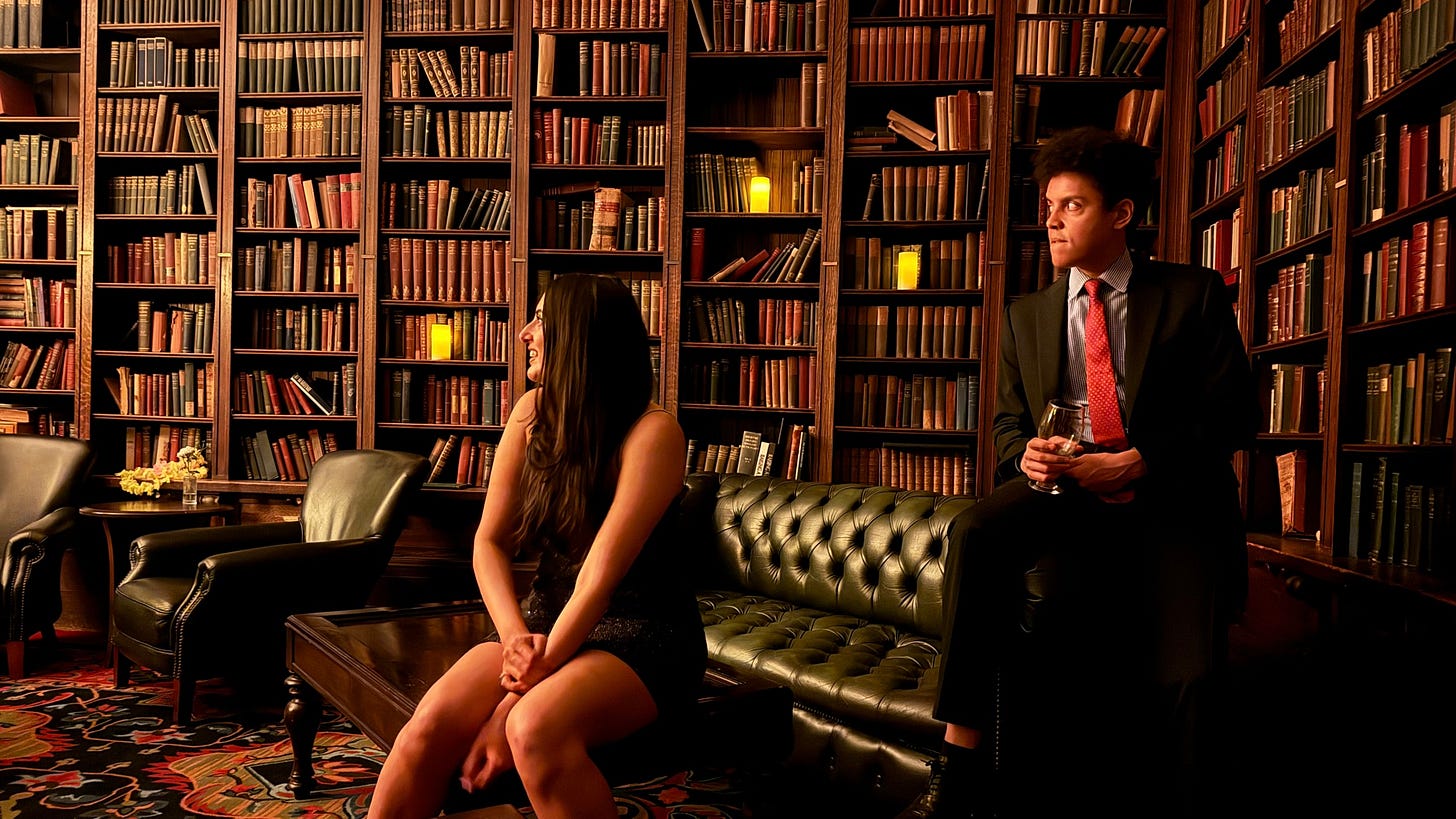I lived in New York City for my first job out of school. At the time, New York was a no-brainer: I worked in finance, was ready to grind, hungry to build a career, and half my graduating class seemed to be doing the same.
When I was twenty-one and unsure of how I wanted to contribute to the world, there was something curiously comforting about being a clone: going into the same shiny office buildings, wearing the same suits, believing the same things, being part of a machinery where the career ladder (“The Path”) was well-known and well-trodden. As long as I was just one piece of the machinery, as long as I stayed small, I was safe.
The playbook was clear: live close to the office, learn the right combination of performance and politics, keep costs low, stay physically sharp (don’t acquire a drinking problem, don’t abuse the Seamless stipend, stick to salads), and grind for 5-7 years. Within 2-3 years, it’s usually obvious whether there’s a path forward for you (e.g., sponsorship for career escalation) at the firm or not. Most people either stay on The Path, go to business school, or pivot into something else by then.
It just wasn’t the game I wanted to play.
In extremis, the laws of physics break down to reveal certain fundamental truths of nature. I learned a lot about myself those first two years out of school — first in investment banking in New York, then in tech IPO advisory in Silicon Valley:
I learned sheer willpower is not enough to power me through the day-in, day-out of 80-hour work weeks. (“60 hours is nothing bro” is not a flex but a reality check)
I learned I don’t have the physical stamina to compete with my peers who played D1 sports in college and could show up after an all-nighter ready to do it again.
I learned prestige and indecision are poor reasons to commit to a vocation.
I learned eight hours of sleep is how I achieve peak performance.1
I learned the culture of banking is admirable but alien to me.
I learned the upper bounds of my work ethic.
Most importantly, I learned we have to decide what success means to us. Then we have to decide what kind of success we can replicate. We can’t take advice from someone with a completely different skillset or resource background from our own. We have to find successful people with skillsets and values we can and want to emulate.
In extremis, the laws of physics break down to reveal fundamental truths of nature.
Since joining Datadog in 2022, New York has come up again as an option. I spent the last six months weighing the pros and cons, looking at apartments in person (even pitching apartment swaps to any NY-based friend willing to entertain the idea), and ultimately netted out against the move.
There’s a lot to love about New York. Among my favorite attributes:
You can just show up. Unlike SF and LA, where going out in groups and a predefined social circle is the norm, you can simply show up in NYC. You don’t need friends, family, or acquaintances to have a good time.
Anyone can blend in unnoticed. Drop anyone in the world in Manhattan and they’ll still fit in. Between the 9 million residents and perpetual flow of tourists, no one will question why you’re here, what you look like, or how you’re dressed.
It’s impossible to be bored. Between the cute shops, restaurants, cafes, and shows, there’s no shortage of experiences to be had as long as you’re willing to open your wallet. Capitalism is on point here.2
The same attributes also shape its downsides:
Liquid social circles extend to dating. From dozens of single male and female friends alike, dating in New York can be summarized as “Everyone is too busy and thinks they can do better.”
My values are more easily warped. New York is a city full of heroes and antiheroes, running on the same treadmill. Between the glistening buildings and shiny lights, I’m afraid I won’t be able to tell the difference.
Activities tend to be consumptive. Going out, eating, and partying together doesn’t create real connection. Genuinely enjoying each other’s company does. (This is a personal definition, based on what I value in my relationships.)
Time and attention are zero-sum resources, so I don’t feel bad about being selective with my time, even if my next best alternative is spending an evening at home alone. My activation energy for going out is high, and a large part of New York’s appeal is chance encounters and people to meet by virtue of proximity and density.
While relocating to New York for work could result in some short-term wins (working at HQ = proximity to leadership = where decisions are made), it isn’t the only game I want to play. Optimizing for local maxima without consideration to the other axes of life (e.g., family, friends, community, environment, values-alignment, spiritual and emotional richness) isn’t a bet I feel balanced about making.
Imagine working for a manager who’s only got her career going for her.
If some adverse or unexpected event happens at work, that manager has little emotional bandwidth to absorb the shock because she’s not diversified. She doesn’t have family, her friends aren’t around, and she’s just human at the end of the day. There are only so many downward dogs and ujjayi breaths she can take before she’s depleted. That manager would be brittle.
She wouldn’t be able to show up for herself or others with as deep a well of empathy, kindness, or compassion—traits critical to a good manager—especially for a 0-1 team where trust, ability to test, fail fast, learn together, and feel psychologically safe is key.
I couldn’t do that to my team.
I’m convinced the worst time to move to New York is mid-career, when you’re looking at 3-5% incremental yearly pay bumps. Unless there’s a clear path to meaningful career acceleration (i.e., you will achieve escape velocity), it’s better to stay in Austin or Raleigh or Seattle or even the Bay Area as a W-2 earner. At this point, you’ve likely built some community in your current city, maybe have a family, and relocating your life for a job is betting the house on a specific career outcome. Some people thrive under pressure (“burn the ships!”), but I never want to have my back against the wall.3
And if you just really want to be in the New York, you can get 75% of the value of being in New York by spending 3-4 months of the year here (spring and fall). The folks I know who do this have usually achieved a major liquidity event to afford optionality, while escaping the downsides (winter and summer).
Don’t get me wrong. San Francisco is far from perfect. Living in SF has forced me to recognize my finite capacity for compassion. I’ve started to engage in a sort of spiritual triage: helping those who just need a bit of aid to get on their way, and becoming dispassionately blind to those who are woefully helpless — because there are simply too many daily injustices to log in my conscience while navigating the streets of this city. (And sometimes this California hillbilly craves culture too.)
So New York in small doses is perfect.
Then I come home to San Francisco and I can hear myself think again.
I can already hear my finance friends howling with laughter all the way from Central Park and Midtown East. Milan, Nathan, Adam: I’m cheering you on from the comfort of my quiet little fishing village that is San Francisco.
Indoor skiing? Alpaca bakery? Naked comedy? If it exists, it probably exists in New York. You can find every flavor of wonderful and weird.
My best creative thinking and long-term planning have come from a place of curiosity and openness to unlearning (e.g., admitting I was wrong or that a POV no longer serves me).





